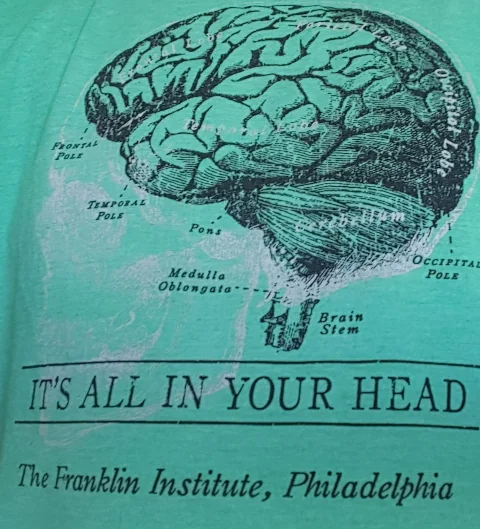About NEURODATA.SCIENCE
blog page
How the brain, from a data point of view, acquire, develop, code, process and preserve his functions?
This is a personal effort to understand the work in selected topics related to the field of interest. You can find:
- descriptions of relevant links and quotes about new and old seminal papers
- review in deep or simply briefly comment selected books
- discuss specific topics in neurodata science
- commentaries about what I learn with my professional practice and studies
- links to resources for free software-tools and neuro-datasets curated in the web
- the step by step now occurring testimony of a modern clinical EEG laboratory implementation
- free posts motivated in news, history and others ideas or contributions from my collegiate-networks
- finally a crucial building block is my adolescent-life's secret neologism "loxodromis", that construct need to interconnect, in my opinion, 3 parts: Curiosity from factual observations, Research from experiments, and the triad Imagination-Invention-Creation.
Typically, in epileptology and sleep disorders the teams needed to discuss clinical cases include child neurologists, psychiatrists, adult neurologists (this is my core medicine speciality), neuropsychologists, neuroradiologists, neurosurgeons, pulmonologists, otorrinolaringologists, speciality nurses, nuclear-medicine radiologists, and invited experts. We include software engineers, because data from multiples sources is obtained and currently pre and post processed with standard and very special techniques that require develop and use of various software-tools.
It's my belief that suffering from patients (yes, also included my daughter with mental disorder) gave me force to think that is a priority a (human) brain better understanding, (yes the same already started collaborative task of neuroscience and all the myriad of affine disciplines), but we need a rather different approach:
- First: success to pass the critical filters of 1) global empathy, and 2) personal-group arrogance.
- Second: emulate the humanity treasures (for example, from greek classic thinkers, passing to the "giants shoulders" that we admire (that with cristal-clear words Newton mentioned), including all the polymaths that contributed along the history.
The examples are so much, and only for mention four cases:
- The work of Elizabeth Byerly, she was a nurse who needed to formally study and combine the anthropology to her key researches
- The notorious synergistic work of Franklin, Watson and Crick DISCOVER TO THE CELL WHAT WE NEED TO DECIPHER, BY ANALOGY, TO THE BRAIN
- The Ian Donald and Tom Brown invention of obstetric fetal ultrasound
- The great collaboration between Einstein and Marcell Grossman, in order to leverage the precursor ideas for the theory of general relativity
Here proceed the quoting:
"It is equally important that the system of research administration encourage the flexibility that promotes borrowing within and across disciplines and between basic and applied research. The culture of the laboratory, including its financing, should allow both a natural, unforced pace of work and a degree of self-direction that allows researchers to draw on the personal sources of inspiration on which administrative rule books and traditional science texts are so silent." (from the must-read article: Holton, G., Chang, H., & Jurkowitz, E. (1996). How a Scientific Discovery Is Made: A Case History. American Scientist, 84(4), 364–375. https://www.jstor.org/stable/29775708
Considering the above exposed ideas and also because my curiosity about three concepts entirely enigmatic: Existence, Life and Consciousness -that really wonder a lot- all push me to advance to achieve simultaneously a both more in-deep-focus and broaden view. Someway this need triggered the reborn of my first young passion: mathematics, in form of the computer science and software engineering, a second career. My "master degree" is now running, scientific computation engineering M.S.E.(UNIR) and Statistic & DataScience (EDX MIT micromaster). I Noted that the simple acquisition of vocabulary and valuable hub-connections with students, experts, meetings, and institutions in these disciplines, is constantly enlightening us about different bodies of knowledge, that can overthrow the so-called knowledge silos. To me, that's sounds good and is very awesome to contribute!.
Some named neurologist--engineers are Leigh Hochberg, Mandar S. Jog, Grey Walter, Malcolm McIver,...
Also, of course Leonardo de Vinci and neuroscience, let's not forget such a great artist, neurologist, engineer, and more!.
Along this "about" declaration notice the germ of networks concepts, indeed such organizations in our brains seems to add another paradigm to the framework, consider for example the micro, meso, and macro connectomes, or the network approach for epilepsy, or the brain functional default-mode network postulate, or the model of global neuronal (or cognitive) workspace. Not mentioned here, but seems an essential core domains the complex systems' theory and philosophy-epistemology, indeed I were more influenced by great thinkers like the chileans Maturana and Varela, also (but not exclusively neither by importance) Wolfram, Foucault, Dehaene-Changeux, Taleb, Dijkstra, Jaynes and Guthrie C. and my teachers along the life. But no dude, the Vitrubian Man in my wall is my favorite, the other one is a charity-institution recognition that said "The reward for a thing well done is to have done it", a quote from Alberto Hurtado.
If a strange image at the right of wide-screen displays is observed, and you're intrigued, the terms in "Neuro Data Science Brain" were used in stable-diffusion model free online, the result is this picture.
📧 For site content related contributions, suggestions and opinions use this mail: [email protected]
📧 For site technical issues (or alter ego contact): [email protected]
📧 For research contact: [email protected]
 In this internal link you can access my others personal and institutional contacts.
In this internal link you can access my others personal and institutional contacts.
Kerckhoffs's principle is the reason I put public the template that used to build and develop this homepage.
« Back to home